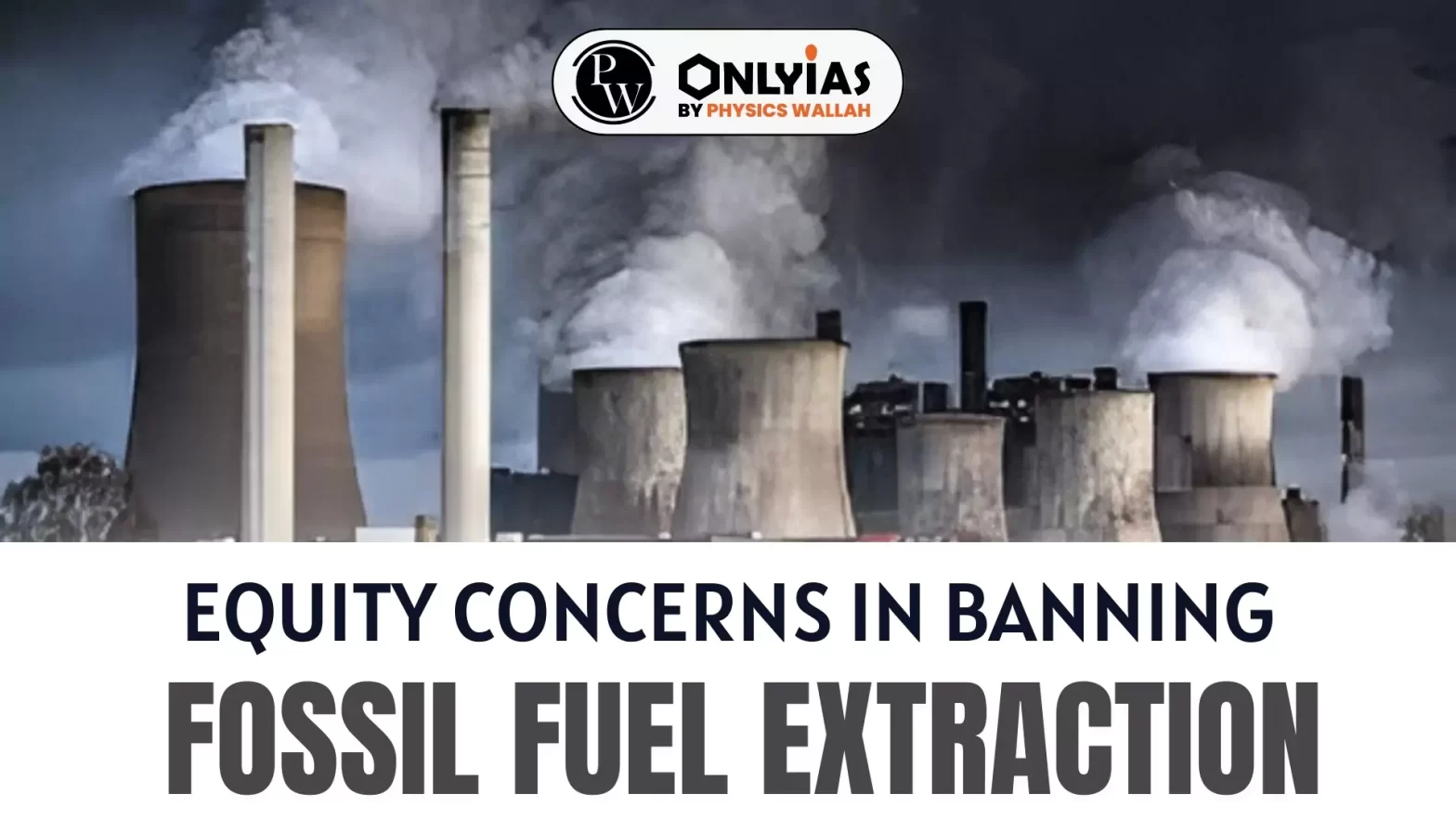![]() 8 Feb 2024
8 Feb 2024

This editorial is based on the news “Equity concerns in banning fossil fuel extraction” which was published in the Hindu. This article highlights the challenges of inadequate response from governments and corporations in dealing with the issue of climate change.
| Relevancy for Prelims: Paris Agreement, Net Zero Emissions by 2050, Common but Differentiated Responsibilities and Respective Capabilities (CBDR-RC) and Nationally determined contributions (NDC).
Relevancy for Mains: Fossil Fuels- Significance, Challenges, Concerns and Way Forward. |
|---|
| Must Read | |
| NCERT Notes For UPSC | UPSC Daily Current Affairs |
| UPSC Blogs | UPSC Daily Editorials |
| Daily Current Affairs Quiz | Daily Main Answer Writing |
| UPSC Mains Previous Year Papers | UPSC Test Series 2024 |
<div class="new-fform">
</div>